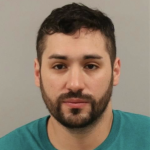To the Editor:
After attending the Cape May County-sponsored “Putting Faces on Addiction” seminar on Sept. 5, I came away with sadness and a great deal of pain. Many in the audience cried out for help with “their addict.” The agencies present all had their version of a solution. The truth of the matter is the parent, spouse, loved one has absolutely no control over the addict. You cannot make him/her better by repetitive admissions to a rehab or giving the addict medicine to control the urges of addiction. Talk to any former addict in recovery and they all tell you the same message, “When the addict is sick and tired of being sick and tired, then and only then can the path to sobriety begin.” Then and only then can you and the addict begin to investigate recovery programs.
From my own personal experience of dealing with addiction in the family, the insanity stopped when I began to take care of myself. Once I did this, the rest of the family benefitted as I was now paying attention to them instead of putting all my time and energy into the addict. The addict benefited when he/she realized I was no longer the easy touch, ready to be deceived. There is a saying about addicts, “How do you know when an addict not in recovery is lying? Their lips are moving.” They suffer from a sickness that is all consuming.
How did I take care of myself? I needed to find a way to deal with my own family and friends, who criticized me or told me what to do even though they were clueless. I finally found others who faced the same problem and were willing to talk about it and listen. While I was never given advice about how “to fix the problem,” I became a very good listener. In the end I adopted two philosophies: 1) Do not criticize/advise me until you walk in my shoes and 2) Renewed faith in my religion brought me to a better place.
Watching the recovery process was a horrible scary experience because often times I watched the addict destroying himself and chose not to intervene. I prayed a lot. 25 years later my addict has finally obtained sobriety and is in recovery. Once the addict was in recovery, I was able to work on repairing the lost trust between the addict and me.
Each situation is different when dealing with the addict. Male addicts have different issues than female addicts. Addicts who have not reached majority pose many additional problems than those who are of age. Married addicts affect their spouses and children; unmarried addicts tear the heart out of their families and loved ones. The long-term medical effects of addiction many times haunt the recovering addict for the rest of his/her life. I certainly do not have the answers but together we can help each other overcome this challenging life situation.







